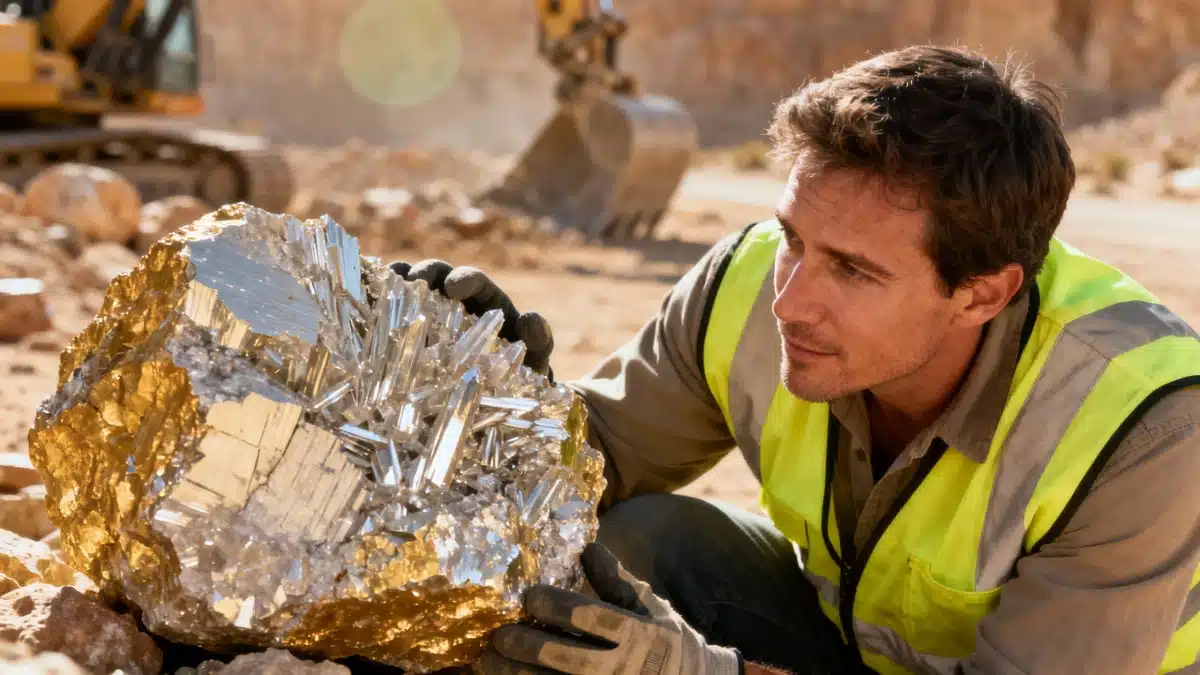If your phone battery, electric car dream, or renewable energy hope ever seems to hinge on a mysterious metal, you’re not imagining things. Lithium—the silver-white mineral at the heart of modern tech—has set off political action that’s anything but dull. The U.S. has taken a bold step to secure its future lithium supply, diving into the Nevada desert (figuratively, at least) with a government stake in a mega mine. Will it be enough to shake off China’s lead? Let’s dig in.
Washington Digs In: The DOE Takes a Bite
The Department of Energy has announced it will scoop up a 5% equity stake in Lithium Americas, the Vancouver-based mining company, as well as a 5% interest in the ambitious Thacker Pass lithium mining project. Thacker Pass isn’t just another hole in the ground; it’s a joint venture with General Motors and is quickly becoming the great hope for U.S. lithium independence. The government’s direct involvement marks a significant intervention in the country’s domestic mineral supply strategy, and it’s not the first time this administration has rolled up its sleeves to get involved.
- The DOE will invest in the miner as well as the Nevada project.
- Thacker Pass is considered key to cutting the U.S. reliance on China for lithium supplies.
- Both major U.S. political parties are firmly in support, rare as that is these days.
Why All This Fuss Over Lithium?
Lithium isn’t just a buzzword for tech enthusiasts; it’s a critical ingredient in the batteries that power cell phones, electric vehicles (EVs), and renewable energy storage. China currently dominates global lithium processing, making America’s tech ambitions especially dependent on imports. Secretary of Energy Chris Wright summed up the significance: partnering with Lithium Americas « helps reduce our dependence on foreign adversaries for critical minerals by strengthening domestic supply chains and ensures better stewardship of American taxpayer dollars. » In short, more lithium at home means fewer sleepless nights about foreign adversaries flicking the power switch.
The U.S. currently produces less than 1% of the world’s lithium—even with significant deposits under its own soil. Thacker Pass isn’t just expected to close the gap; according to plans, it could supply enough lithium to build a million EVs per year, if GM’s $900 million pledge to help develop the site is anything to go by. That’s a million brand-new car batteries and a million Americans potentially spending less time at the gas station.
The Federal Intervention Playbook
The government’s role in lithium and tech minerals isn’t a one-off adventure. The equity stake in Lithium Americas is just the latest entry in a growing list of direct interventions with private industry. Recent maneuvers have included:
- A 10% stake in Intel after converting billions previously given as grants and pledges.
- Buying $400 million worth of MP Materials stock to be the leading shareholder in a Las Vegas rare earths mining company.
- Striking deals with Nvidia and AMD, ensuring the U.S. government receives 15% of revenue from the sale of certain chips to China.
For Lithium Americas, progress took another step forward with a non-binding agreement in principle, allowing them to access the first tranche—$435 million—of a federal loan. To sweeten the deal, the Department of Energy has agreed to defer $182 million in debt service over the next five years. The total federal loan changes are valued at about $2.3 billion and, with both Lithium Americas and the White House on board, prospects for extracting truckloads of lithium look bright.
American and Canadian Collaboration: Friends With Electric Benefits
This cross-border deal with Canada’s Lithium Americas shows what can happen when allies (and automakers like GM) get together to shift the balance of global resources. The two parties have been ironing out details to unlock federal support and move the enormous Thacker Pass project ahead. And it’s not just about the metal; it’s about showing that North America can build up domestic supply chains so the future of clean tech jobs and industries isn’t left to chance—or to Beijing.
As Secretary Wright aptly put it, “Despite having some of the largest deposits, the U.S. produced less than 1% of the global lithium supply but this deal helps reduce dependence on foreign adversaries for critical minerals strengthening domestic supply chains and ensuring better stewardship of American taxpayer dollars with lithium production set to grow exponentially over the coming years.”
The message is clear: with lithium demand soaring, domestic control may be the difference between leading the charge and lagging behind. Now, only time (and a few shovels) will tell if America can keep its batteries—and its ambitions—fully charged.

John is a curious mind who loves to write about diverse topics. Passionate about sharing his thoughts and perspectives, he enjoys sparking conversations and encouraging discovery. For him, every subject is an invitation to discuss and learn.






